MercoPress. South Atlantic News Agency
Tag: Mario Draghi
-
Friday, May 3rd 2013 - 02:24 UTC
EU “nightmare of unemployment” debate reaches ECB, which cuts rates to record low 0.5%

The European Central Bank cut interest rates to a new record low on Thursday amid a chorus of calls for the Euro zone to focus on growth to end a “nightmare of unemployment” in the bloc. It was the first cut in ten months.
-
Saturday, March 9th 2013 - 04:16 UTC
ECB calls on governments to promote growth and combat the tragedy of unemployment

European Central Bank President Mario Draghi urged indebted governments to move beyond spending cuts and tax hikes and introduce reforms that would boost growth and reduce the “tragedy” of unemployment.
-
Friday, February 15th 2013 - 05:29 UTC
G-20 Finance ministers to discuss effects of monetary stimuli and currency values
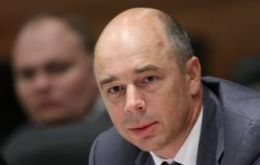
The finance ministers of the G20 group of nations are meeting in Moscow amid concerns that major trading powers may be heading towards a currency war. Japan's monetary stance has seen a big decline in the Yen, while the Euro has risen against a basket of currencies.
-
Thursday, February 7th 2013 - 19:22 UTC
ECB leaves rates unchanged, but appreciation of the Euro turns into controversy

European Central Bank President Mario Draghi admitted on Thursday policy makers are concerned that the Euro strength will hamper their efforts to pull the economy out of recession and although the exchange rate is not a policy target, he confirmed “it is important for growth and price stability”.
-
Tuesday, February 5th 2013 - 17:03 UTC
France insists Euro is too strong; fears it could undermine exports
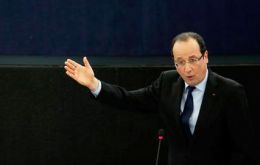
French President François Hollande called on the Euro zone on Tuesday to develop an exchange rate policy to help protect the common currency from “irrational movements”. His comments came amid growing concern that the Euro, now trading around 1.35 to the US dollar, is too strong and could undermine the country’s exporters and hence wider economic growth.
-
Friday, January 11th 2013 - 08:32 UTC
An optimistic Dragui sees a “positive contagion” in the Euro zone economy

European Central Bank (ECB) president Mario Draghi spoke on Thursday of a “positive contagion” in the Euro zone economy, saying that the financial situation is improving and growth is set to return in the second half of the year.
-
Wednesday, January 2nd 2013 - 23:53 UTC
Money timidly returning to Spain after 14 months of sustained outflows
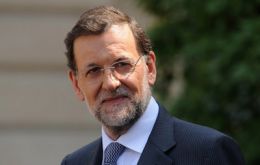
Foreign investors put more money into Spain in October than they took out, marking the second month running the country has benefited from an influx of capital. Spain registered capital inflow of 12.1 billion Euros in October, the Bank of Spain said on Friday. The figure, which excludes central bank operations, was lower than the 31 billion Euros of inflow in September.
-
Saturday, December 1st 2012 - 07:00 UTC
Moody’s downgrades EU financial support funds after France loses top grade

Moody's Ratings agency announced it has downgraded the European Stability Mechanism (ESM) and European Financial Stability Facility (EFSF) from “Aaa” to “Aa1,” with negative outlook on each.
-
Friday, November 9th 2012 - 06:30 UTC
Draghi confirms economic activity in Euro is “expected to remains weak”
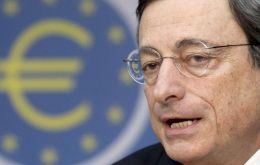
The European Central Bank (ECB) has held the benchmark Euro zone interest rate at the record low of 0.75%, as had been expected. The rate has been at this level for four months, after July's cut from 1%.
-
Monday, September 24th 2012 - 19:56 UTC
German fears of recession as business climate index drops for fifth month running
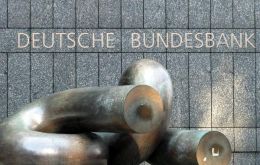
German business sentiment dropped for a fifth straight month in September to its lowest since early 2010, raising fears of recession and underlining that a bold bond-buying plan laid out by the European Central Bank is no economic blessing.
